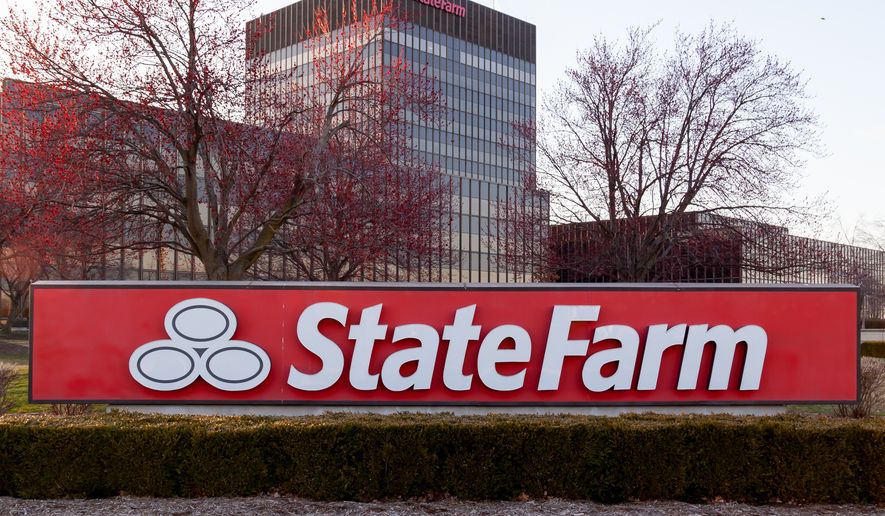State Farm has cut off its partnership with the GenderCool Project to donate LGBTQ-themed books aimed at children as young as five after a backlash over the program.
“State Farm’s support of a philanthropic program, GenderCool, has been the subject of news and customer inquiries. This program that included books about gender identity was intended to promote inclusivity,” the insurance provider said in a statement to The Washington Times.
“We support organizations that provide resources for parents to have conversations about gender and identity with their children at home. We do not support required curriculum in schools on this topic,” the statement reads. “As a result, we have made the decision we will no longer be affiliated with the organization.”
The insurer’s turnaround came after Consumers’ Research published Monday an internal Jan. 18 company email seeking six Florida agents to volunteer to donate a three-book bundle to “their local teacher, community center, or library of their choice.”
The goal was to recruit 550 agents and employees nationwide to help “support our communities in having challenging, important and empowering conversations with children Age 5+,” said the email by State Farm corporate responsibility analyst Jose Soto.
GenderCool, a youth-oriented transgender advocacy group, has published three guides for ages 5+, titled “A Kids Book About Being Transgender,” “A Kids Book About Being Inclusive” and “A Kids Book About Being Non-Binary.”
The Libs of TikTok account posted Monday night a document identified as an internal email from a State Farm executive to agents saying, “We will no longer support that program.”
Consumers’ Research President Will Hild tweeted Monday that State Farm needs to do more than drop its participation in the program, saying the company “must take immediate action to reverse the indoctrination campaign they pushed on American children.”
“It’s too little, too late. They’ve done real damage to America’s families, to America’s children. They need to make that right, they need to fix that, and until they do, the idea that they’re anything except a self-interested, creepy neighbor is just absurd,” Mr. Hild said on Newsmax.
Consumers’ Research posted the email on a newly created website, www.likeacreepyneighbor.com, along with a video titled “Like a Creepy Neighbor,” a riff on State Farm’s advertising slogan.
“State Farm tells us they’re a good neighbor. But would a good neighbor target five-year-olds for a conversation about sexual identity? That’s what State Farm is doing,” said the Consumers’ Research video.
Like a creepy neighbor, @StateFarm is there…https://t.co/q9N18curEZpic.twitter.com/mkbCBvE29L
— Consumers’ Research (@ConsumersFirst) May 23, 2022
Mr. Hild said State Farm is in “full panic mode” and needs to do more than cancel its participation in the project.
“One internal email is not enough. @StateFarm must take steps to reverse the damage done,” tweeted Mr. Hild.
He urged State Farm to hire a third party to conduct an independent audit; determine where any books had been donated; publish the results, and notify parents about dropped-off books in their area.
On the other side was LGBTQ activist Charlotte Clymer, who blasted State Farm for abandoning the project.
“Last night, State Farm, the insurance company, gave up on LGBTQ rights after being pressured by hateful extremists,” Ms. Clymer tweeted Tuesday. “So much for being a good neighbor.”
Ms. Clymer noted that the Jan. 18 email was directed at agents in Florida, where a bill barring instruction on sexual orientation and gender identity in grades K-3 is scheduled to take effect July 1.
The program “was intended to be all privately funded, all volunteer, and all strictly based on recipients’ choosing to be part of the program,” Ms. Clymer said in a Substack video. “But State Farm pulled the plug because they got scared and decided it’s more important to placate LGBTQ extremists than stand beside the LGBTQ community.”
State Farm said it would continue to “explore how we can support our associates, as well as organizations that align with our commitment to diversity and inclusion, including the LGBTQ+ community.”
• Valerie Richardson can be reached at vrichardson@washingtontimes.com.




Please read our comment policy before commenting.